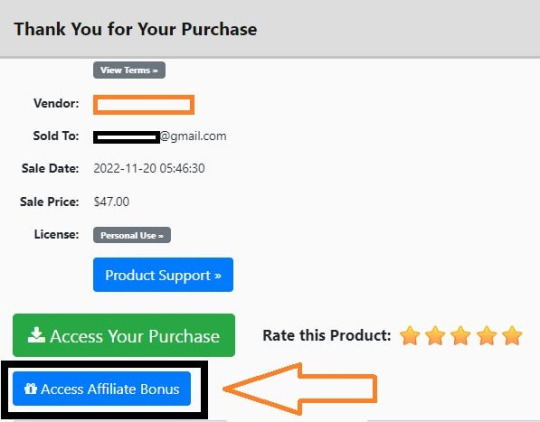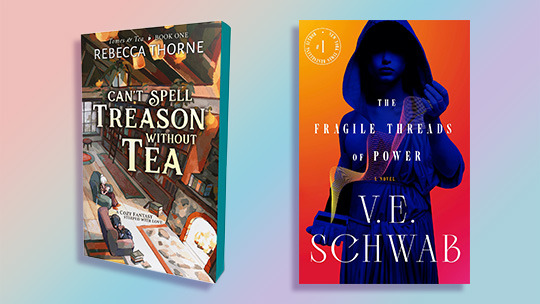#AI Profit Pages
Text

A.I Profit Pages Review: Benefits
Quick Results:
-A.I Profit Pages can quickly rank your profit pages on Google, often within minutes.
-No need to wait for months to see your SEO efforts pay off1.
No SEO Knowledge Required:
-The system handles all the complexities of SEO, so you don’t need to learn or implement SEO strategies yourself.
-Say goodbye to the steep learning curve—start driving traffic and making sales faster1.
Cost-Efficient:
-Eliminates costs associated with traditional website development, such as hosting and domain registration.
-Avoid additional expenses on expensive SEO tools or hiring professionals
What AI Profit Pages Does to Solve This
Eliminates the SEO Learning Curve:
-You don’t need to become an SEO expert. AI Profit Pages handles all technical SEO strategies automatically, helping your pages rank quickly on Google without the usual hassle.
-Say goodbye to months of waiting—your content can rank within minutes, allowing you to drive traffic and make sales faster.
Reduces Costs:
-No need to invest in website development, hosting, or domains.
-Avoid paying for expensive SEO tools or professionals.
-AI Profit Pages breaks down the financial barriers to effective online marketing.
Simplifies Content Creation:
-Content is king, but creating it can be a stumbling block.
-The platform generates articles optimized for Google, ensuring your offerings reach the right audience.
>>>>Get More Info
2 notes
·
View notes
Text
AI Profit Pages Review: Simplifying Online Marketing

A.I Profit Pages Review: Benefits
Quick Results:
A.I Profit Pages can quickly rank your profit pages on Google, often within minutes.
No need to wait for months to see your SEO efforts pay off.
No SEO Knowledge Required:
The system handles all the complexities of SEO, so you don’t need to learn or implement SEO strategies yourself.
Say goodbye to the steep learning curve—start driving traffic and making sales faster.
Cost-Efficient:
Eliminates costs associated with traditional website development, such as hosting and domain registration.
Avoid additional expenses on expensive SEO tools or hiring professionals
What AI Profit Pages Do to Solve This
Eliminates the SEO Learning Curve:
You don’t need to become an SEO expert. AI Profit Pages handles all technical SEO strategies automatically, helping your pages rank quickly on Google without the usual hassle.
Say goodbye to months of waiting—your content can rank within minutes, allowing you to drive traffic and make sales faster.
Reduces Costs:
No need to invest in website development, hosting, or domains.
Avoid paying for expensive SEO tools or professionals.
AI Profit Pages breaks down the financial barriers to effective online marketing.
Simplifies Content Creation:
Content is king, but creating it can be a stumbling block.
The platform generates articles optimized for Google, ensuring your offerings reach the right audience.
>>>>>Get More Info
#affiliate marketing#AI Profit Pages Review#AI Profit Pages#Make Money Online#Affiliate Marketing#Digital Marketing
2 notes
·
View notes
Text
0 notes
Text
A.I Profit Pages Review – Generates Us Free Traffic & Sales Instantly
Welcome to my A.I Profit Pages Review Post, Where I will discuss the features, upgrades, demo, price, and bonuses, how A.I Profit Pages can benefit you. This AI “Plug N Play” Profit Machine Instantly Creates “DONE FOR YOU” Profit Pages That Generate Us Sales And Commissions In Less Than 90 Seconds This makes us $983.64 passively daily.
A.I. Profit Pages has entered the chat, promising to revolutionize the way you build your online presence. This software leverages the power of artificial intelligence (AI) to streamline the process of crafting profitable web pages in minutes. Imagine generating up to $983.64 daily without lifting a finger, thanks to our automated system that links directly to an exclusive Google traffic source. We’re thrilled to announce the launch of something revolutionary, A.I Profit Pages! Today, you can utilize the latest 2024 A.I technology to generate “DONE FOR YOU” Profit Pages that are poised to revolutionize the industry. By utilizing AI-powered content creation, pre-designed templates, and a built-in traffic solution, A.I. Profit Pages promises an easy and efficient path to online success.

A.I Profit Pages Review: What Is A.I Profit Pages?
A.I. Profit Pages is a web-based application that throws its hat into the ring of online marketing tools, promising to revolutionize landing page creation with the power of artificial intelligence (AI). Imagine churning out profit-generating web pages in minutes, without needing design skills or wrestling with code. That’s the core proposition of A.I. Profit Pages.

The software boasts AI technology that supposedly generates compelling content for your landing pages, headlines, product descriptions, and even email copy. It also offers a library of pre-built landing page templates, supposedly optimized for conversions, alongside a drag-and-drop editor for some level of customization. But wait, there’s more! A.I. Profit Pages even claims to have a built-in system for attracting visitors to your shiny new pages. Sounds too good to be true? This review will dissect the claims, explore the potential benefits and drawbacks, and ultimately help you decide if A.I. Profit Pages is the key to unlocking your online business potential.
A.I Profit Pages Review: Overview

Creator: James Fawcett
Product: A.I Profit Pages
Date Of Launch: 2024-Apr-24
Time Of Launch: 09:00 EDT
Front-End Price: $17 (One-time payment)
Official Website: Click Here To Access
Product Type: Software (Online), Website/Membership
Support: Effective Response
Discount: Get The Best Discount Right Now!
Recommended: Highly Recommended
Bonuses: Huge Bonuses
Skill Level Required: All Levels
Refund: YES, 60 Days Money-Back Guarantee
<<>> Click Here & Get Access Now A.I Profit Pages Discount Price Here <<>>
A.I Profit Pages Review: About Authors

This offer A.I Profit Pages was launched by James Fawcett. He is a well-known AI-powered funnel maker who makes great launches. James Fawcett is a very good software coder who also loves digital marketing. He is an entrepreneur at Meenapreneur. Because James Fawcett is good at AI and digital affiliate marketing, he started A.I Profit Pages, a company that wants to help people with online sales and marketing.
In addition to A.I Profit Pages, Fawcett built a reputation through a number of launches, including ProfitCell, Delta, 10K Profit System, ProfitLink, Recurrent, ProfitPad, Hydra, AffiliateOne, and many others.
A.I Profit Pages Review: Features
Our AI Generate Content That Google CRAVE And Rank Instantly
Finally, Get Thousands Of Targeted Clicks From Google For 100% Free
No Boring SEO Or Waiting Months, We Rank #1 Within Minutes
No Experience is Needed Whatsoever. Anyone Can Do It
It Doesn’t Matter What Niche And What Keyword, Competition Means NOTHING To Us
No Hidden Costs And No Hidden Work, All It Takes Is Just 2 Minutes
There is No Need To Create Websites, Buy Hosting, Or Domain
All Of The Work Is Done For Us With The Power Of AI
Works In Any Niche In Any Country
60-Day Money-Back Guarantee.
A.I Profit Pages Review: How Does It Work?
You Are 3 Clicks Away From Replicating Our Success With ZERO Experience, With ZERO Upfront Cost



<<>> Click Here & Get Access Now A.I Profit Pages Discount Price Here <<>>
A.I Profit Pages Review: Can Do For You
Strengthening Your Analysis: I can help you find data and statistics to support your claims about the effectiveness (or lack thereof) of AI-generated content and automated traffic generation.
Providing Counterarguments: I can help you brainstorm potential counterarguments to the benefits listed for A.I. Profit Pages and explore alternative solutions.
Offering Different Perspectives: I can help you consider the review from the viewpoints of different user types, such as tech-savvy individuals versus complete beginners.
Improving Readability: I can help you refine the language and structure of your review to ensure clarity, flow, and engagement for the reader.
A.I Profit Pages Review: Who Should Use It?
Affiliate Marketers
Youtube Content Creators
Bloggers
Podcasters
Business Owners
Founders, CEOs, CMOs, Founders
eCom & Shopify Store Owners
Social Media Marketers
A.I Profit Pages Review: OTO’s And Pricing
Front End Price: A.I Profit Pages ($17)
OTO1: Unlimited Edition ($67)
OTO2: Done For You ($297)
OTO3: Autopilot ($67)
OTO4: Limitless Buyer Traffic ($47)
OTO5: Ultimate Emergency Cash Methods ($97)
OTO6: 100% Franchise Rights ($297)
OTO7: 50X Multiplier Edition ($97)
<<>> Click Here & Get Access Now A.I Profit Pages Discount Price Here <<>>
A.I Profit Pages Review: My Unique Bonus Bundle
My Unique Bonus Bundle will be visible on your access page as an Affiliate Bonus Button on WarriorPlus immediately after purchase.

And before ending my honest GALAXY 10K Review, I told you that I would give you my very own unique PFTSES formula for Free.
A.I Profit Pages Review: Free Bonuses
Bonus #1: 5 In 1 Bonus! ($4997 Value)
Guaranteed approval on not Just 1 But 5 Offers to Start Generating Commissions Right out of the Gate! ProfitLink, 10k Profit System, Recurrent, AffiliateOne and ProfitPad!
Bonus #2: $500/Day Emergency Cash Method (Value $997)
We give you the exact way we generate $500 daily, especially if we find ourselves short on cash. Normally $997, but you get this FREE with your copy of Delta
Bonus #3: 3000 AI Images (Value $1,197)
We’ve procured over 3000 AI cash magnets… This allows you to generate content with ease, ultimately converting cold audiences into fuel-driven buyers.
Bonus #4: 10-Day Cash Converting Campaign Series (Value — $1,097)
Take Fast Action today and get our High Converting 10-day Campaign Series. Proven to turn fence-sitters into consistent and long-term buyers.
Bonus #5: Quickfire Commission Method(Value $997)
Using this Secret Sauce will get you Hot Buyers fast to your offers. The traffic strategies including both FREE and PAID, are proven to deliver sales consistently day after day.
<<>> Click Here & Get Access Now A.I Profit Pages Discount Price Here <<>>
A.I Profit Pages Review: Money Back Guarantee
Our 60 Days Iron Clad Money Back Guarantee
Look, AI Profit Pages isn’t one of those “trash” apps that haven’t been tried. We already know what it can do. But if for some reason you can’t use AI Profit Pages, which is very rare, you must send us an email. We don’t want your money if you don’t make money. We make more than enough with AI profit pages. And putting money away that you’re not going to use is a waste. In the worst case, you get AI profit pages but don’t make any money. You get all of your money back.
A.I Profit Pages Review: Pros and Cons
Pros:
Fast and Easy Setup: Pre-built templates and AI-generated content can expedite the landing page creation process, especially for beginners.
Time-Saving: Busy entrepreneurs might find value in the ability to quickly generate content drafts, even if they require further editing.
Beginner-Friendly: The drag-and-drop editor and visual interface offer a low barrier to entry for those with no coding experience.
Cons:
You cannot use this product without an active internet connection.
In fact, I haven’t yet discovered any other problems with A.I Profit Pages.
Frequently Asked Questions (FAQ’s)
Q. Do I need any experience to get started?
None, all you need is just internet connection. And you’re good to go.
Q. How long does it take to make money?
Our average member made their first sale the same day they got access to AI Profit Pages.
Q. What if I failed?
While that is unlikely, we removed all the risk for you. If you tried AI Profit Pages and failed, we will refund you every cent you paid And send you $300 on top of that just to apologize for wasting your time.
Q. Is there any monthly cost?
Depends, If you act now, NONE. But if you wait, you might end up paying $997/mo It’s up to you.
Q. Do I need to purchase anything else for it to work?
No, AI Profit Pages are the complete thing. You get everything you need to make it work. Nothing is left behind.
Q. How can I get started?
Awesome, I like your excitement, All what you have to do is click any of the buy buttons on the page and secure your copy of AI Profit Pages at a one-time fee.
A.I Profit Pages Review: My Recommendation
A.I. Profit Pages offers a starting point for those entirely new to landing page creation or strapped for time. However, its limitations in content quality, customization, and long-term traffic generation strategies necessitate careful consideration. For those seeking sustainable online growth, a combination of SEO optimization, content marketing, and social media engagement alongside a more robust website building platform might be a more strategic approach. Ultimately, the decision depends on your budget, technical expertise, and long-term business goals.
<<>> Click Here & Get Access Now A.I Profit Pages Discount Price Here <<>>
Check Out My Previous Reviews: GALAXY 10K Review, KidTales PLR Review, Site Builder AI Review, ChatGPT Prompts Bundle Review, DEVIO Review, CaptivateAI Studio Review.
Thank for reading my A.I Profit Pages Review till the end. Hope it will help you to make purchase decision perfectly.
Disclaimer: This A.I. Profit Pages review is for informational purposes only and does not constitute professional advice. Before making a purchase decision, we recommend conducting your own research and exploring the software.
Note: Yes, this is a paid software, however the one-time fee is $17 for lifetime
#A.I Profit Pages#A.I Profit Pages App#A.I Profit Pages Upgrades#A.I Profit Pages Overview#A.I Profit Pages Features#A.I Profit Pages Review#A.I Profit Pages Works#What Is A.I Profit Pages#Buy A.I Profit Pages#A.I Profit Pages Price#A.I Profit Pages Demo#A.I Profit Pages Discount#A.I Profit Pages Honest Review#A.I Profit Pages Pricing#A.I Profit Pages FE#A.I Profit Pages Pros#A.I Profit Pages OTO#A.I Profit Pages Preview#A.I Profit Pages Scam#Get A.I Profit Pages#A.I Profit Pages Reviews#Purchase A.I Profit Pages#A.I Profit Pages Legal#Artificial Intelligence#AI#A.I Profit Pages Benefits#A.I Profit Pages Bonus#A.I Profit Pages Bonuses#A.I Profit Pages Software#A.I Profit Pages Software Review
0 notes
Text
⚠️ Fandom is Moving Forward with Generative AI ⚠️

As of December 15, Fandom has announced their plans to continue using AI to "enhance" their articles.
In short, they claim to have primarily used AI to
Scan images for "appropriateness" (be that NSFW content or just fitting in with the theme of the show), which still involves scraping tons of images and comparing them to a potentially unethically sourced database. As with all machine learning using images, it is still wildly inaccurate.
Optimizing edits - something they admit is still severely lacking because it can't read tables or variants on simple things like "birthday"
Optimizing SEO - this is clearly what they care most about, since Google likes the "Quick Answers" - as shitty as they were - this means they can continue to dominate the search results and gain more ad revenue.
This is a good time to remember that Fandom is a for-profit company with inverstors, which means their end goal is always to make the most money possible. They don't care about "The Fans" (despite the lip service), and they don't care about the authenticity of user-generated content if they can figure out how to automate the process.
STOP USING FANDOM.
Alternatives/Workarounds:
Indie Wiki Buddy is an extension that will redirect you to non-Fandom versions of wikis if it's in their database.
BreezeWiki displays all Fandom wikis in a clean, ad-free format with just the article content (no links to their forums, autoplay videos, etc)
If you must use Fandom, install UBlock Origin. It's available on all desktop browsers and Firefox Mobile. Hit them where it hurts. And encourage the wiki teams to leave Fandom if they can.
Also, be sure to support independent wikis! You can disable adblockers while on their sites, as they usually have much less obtrusive ads which directly fund server maintenance rather than CEO salaries. Change links on your posts/pages to direct to non-Fandom Wikis (even wiki.gg is better).
Keep information free from corporatization.
15K notes
·
View notes
Note
why exactly do you dislike generative art so much? i know its been misused by some folks, but like, why blame a tool because it gets used by shitty people? Why not just... blame the people who are shitty? I mean this in genuinely good faith, you seem like a pretty nice guy normally, but i guess it just makes me confused how... severe? your reactions are sometimes to it. There's a lot of nuance to conversation about it, and by folks a lot smarter than I (I suggest checking out the Are We Art Yet or "AWAY" group! They've got a lot on their page about the ethical use of Image generation software by individuals, and it really helped explain some things I was confused about). I know on my end, it made me think about why I personally was so reactive about Who was allowed to make art and How/Why. Again, all this in good faith, and I'm not asking you to like, Explain yourself or anything- If you just read this and decide to delete it instead of answering, all good! I just hope maybe you'll look into *why* some people advocate for generative software as strongly as they do, and listen to what they have to say about things -🦜

if Ai genuinely generated its own content I wouldn't have as much of a problem with it, however what Ai currently does is scrape other people's art, collect it, and then build something based off of others stolen works without crediting them. It's like. stealing other peoples art, mashing it together, then saying "this is mine i can not only profit of it but i can use it to cut costs in other industries.
this is more evident by people not "making" art but instead using prompts. Its like going to McDonalds and saying "Burger. Big, Juicy, etc, etc" then instead of a worker making the burger it uses an algorithm to build a burger based off of several restaurant's recepies.
example


the left is AI art, the right is one of the artists (Lindong) who it pulled the art style from. it's literally mass producing someone's artstyle by taking their art then using an algorithm to rebuild it in any context. this is even more apparent when you see ai art also tries to recreate artists watermarks and generally blends them together making it unintelligible.
Aside from that theres a lot of other ethical problems with it including generating pretty awful content, including but not limited to cp. It also uses a lot of processing power and apparently water? I haven't caught up on the newer developements i've been depressed about it tbh
Then aside from those, studios are leaning towards Ai generation to replace having to pay people. I've seen professional voice actors complain on twitter that they haven't gotten as much work since ai voice generation started, artists are being cut down and replaced by ai art then having the remaining artists fix any errors in the ai art.
Even beyond those things are the potential for misinformation. Here's an experiment: Which of these two are ai generated?


ready?
These two are both entirely ai generated. I have no idea if they're real people, but in a few months you could ai generate a Biden sex scandal, you could generate politics in whatever situation you want, you can generate popular streamers nude, whatever. and worse yet is ai generated video is already being developed and it doesn't look bad.
I posted on this already but as of right now it only needs one clear frame of a body and it can generate motion. yeah there are issues but it's been like two years since ai development started being taken seriously and we've gotten to this point already. within another two years it'll be close to perfected. There was even tests done with tiktokers and it works. it just fucking works.
There is genuinely not one upside to ai art. at all. it's theft, it's harming peoples lives, its harming the environment, its cutting jobs back and hurting the economy, it's invading peoples privacy, its making pedophilia accessible, and more. it's a plague and there's no vaccine for it. And all because people don't want to take a year to learn anatomy.
5K notes
·
View notes
Text
A (5 star) review of Bury Your Gays, by @drchucktingle!

I read this book in one sitting. I did not plan to read this book in one sitting, but I could not put it down, accepting that my lunch break was now an extended reading break. Bury Your Gays was just that good.
It starts simple. Screenwriter Misha has been told by his exec that the season finale of his show must out, then kill the two leads. He needs to bury his gays because the board has determined it's where the money is. Misha says no. Then starts getting stalked by his (definitely fictional, right?) characters from other shows. Either Misha developed some incredible supernatural powers in that meeting, or something more sinister is at work…
Bury Your Gays illustrates why queer people should be allowed to tell the stories they want to tell, instead of being made to use queerbating, tragic tropes, or fake relentless optimism in the name of corporate Pride. It's a story about the queer struggle to find oneself in a world that makes it so, so hard. There's a lot of love for the queer community poured into this book, and oh does it shines. I especially adored the ace rep - and the concept of ace rep as a plot point. I shall not explain further. However, I am more scared than ever of the corporatization of Pride.
Bury Your Gays also criticizes capitalism's monetization of tragedy and exploitation of workers. It explores what happens when ethics are ignored in the name of an ever-growing profit margin, to the point where the bottom line becomes a near-sentient thing. It leans into the horrors of AI and data-mining by combining the two and going all the way with it. Chuck Tingle has acknowledged all my fears of black box algorithms and also made them ten times worse. Truly a feat! I will be sleeping with my router off!
It's a masterpiece of horror, both visceral and psychological. Since the main character is a horror writer, the story is very genre aware. There's a lot of fun to be had in the tale of "writer being followed by the monsters he wrote," and certainly no small amount of terror. It gets gory here and there, with plenty of suspense in between. Hints are laid out for the reader, enough where I was occasionally able to predict what was coming just a page or two before it landed. My jaw dropped multiple times! The writing is descriptive enough to pull you right in (and gross you out!), and it's paced near-perfectly. There's all these little moments sprinkled in that elevate the whole story, from fun references of other work to subtle clues you'll only catch on a reread.
This book will be living in my head rent-free from now on. It's about so many things and yet has interwoven them all perfectly. Fans of classic horror movies will love this story. Those of us fed up with AI generated trash will love it. Anyone who joined a WGA picket line will love it. Asexuals fed up with lack of representation will love it. People who watched multiple seasons of Supernatural will love it. Is that you? Go pick up Bury Your Gays. Be scared, be sad, be angry. But also validated, loved, and joyful.
TLDR: Read this book when it comes out on July 9!
#chuck tingle#bury your gays#book review#publishes july 9#I was SO EXCITED when I got approved for an eARC of this book#it was everything I wanted it to be and more
742 notes
·
View notes
Text
The IA's "Open Library" is Not a Library, Yesterday's Lower Court Decision does Not "Hurt Authors," and the Planned Appeal Is (Almost Certainly) NOT a Good Way to Try to Change Bad Law (In Fact, It's More Likely to Make Bad Law Worse)
Ok, so a day later, I'm still mad about this. If anything, I'm even madder. I'm going to write this as a response to the Internet Archive's "The Fight Continues" blogpost, but before we begin, let's get some facts straight:
Copyright law in the United States, especially the law around digital lending, currently sucks. It's really really bad, and anyone with a stake in the game - except the big publishers and e-book services that profit from it - hate it.
That said, copyright law exists as a thing. As I said in a previous post, you *can* try to change it through court cases, but there are certain things you cannot change. And there are certain things you can try to change, but it will be an uphill battle to change them in a positive direction. And notably, as bad as digital lending law is in the U.S., it still could always get worse! And one general rule of impact litigation: if you are trying to change the law, you want to make sure you have the best possible facts. Because the worse your facts are, the worse your case is likely to go.
Yesterday's district court ruling DID NOT CHANGE ANY SUBSTANTIVE COPYRIGHT LAW IN THE U.S. I cannot emphasize that enough. Regardless of whatever you think of the ruling, it was applying already existing law to the facts.
This is because the Internet Archive's "Open Library" absolutely violates existing copyright law. It just does! They broke the law, they had plenty of notice they were breaking the law and harming authors (more on that below) and just think the law shouldn't apply because they don't like it.
The Internet Archive's "Open Library" is not a library. Some big ways it differs:
While it pretends to have a one-to-one owned-to-loaned ratio, as the opinion granting the publisher's motion for summary judgement notes, IA concedes that it allows "partner libraries" to add books to its collection and then doesn't check (and has no way of checking) if the book is out of circulation at the "partner library" at the same time it's being "checked out" of the Open Library. In other words, it's like if you took a book, scanned the pages, and then gave the scans to your friend who then loaned the scans out to other people but totally promised they were only lending the scans to one person at a time so it's basically like there is still just one copy! And meanwhile you still own, are reading, and lending out the physical copy of the book. Except instead of one book, they were doing this on a massive scale. NO, THAT'S JUST THEFT.*
Speaking of which, the "Open Library" didn't keep that promise! Their "Emergency Library" just let everyone borrow as many copies at a time as they could! Again, THAT'S JUST THEFT.
Like I'm sorry if you don't like the idea of copyright at all: right now, we live in a capitalist system where authors need to be paid for their work in order to, like, not die. If you take their work, scan it into your computer, and give it away for free to anyone and everyone, THAT'S JUST THEFT.
Also, most authors love libraries! Libraries allow more people to access their books while not substantially impacting their revenue and not impacting their rights! AUTHORS - not just publishers, authors - DO NOT LIKE AI'S "OPEN LIBRARY." Why haven't authors sued to stop this before, why is this the publishers suing? From the above letter: "Even simple copyright lawsuits must be brought in federal court, and often cost hundreds of thousands of dollars. A challenge to the Internet Archive could easily cost millions." Publishers have deep pockets that authors and authors' groups don't. Also, authors who object to AI stealing their work are frequently subject to harassment.
If IA won this case, the new law that would be made is this: it would be legal to steal an author's works.
*I'm using "theft" and "steal" instead of "piracy" throughout this write-up to make it clear what this is. "Pirating books" is just stealing them.
So to sum up the facts above: copyright law in the U.S. sucks, but it exists. Attempting to change it for the better through the court system would be very difficult. Even then, changing the law for the better would likely require a case with good facts. Unfortunately, the law could also change for the worse. Yesterday's ruling did not change any law. The facts in this case are very bad, because the IA absolutely violated copyright law. That is in part because the IA's "Open Library" is not a library; they just steal books. Many (if not most) authors and author's groups don't like that IA is stealing from them. If IA won this case, that victory would mean that anyone was allowed to steal an author's works.
*deep breath*
Ok, let's turn to the IA's statement, "The Fight Continues":
"Today’s lower court decision in Hachette v. Internet Archive is a blow to all libraries and the communities we serve."
The Internet Archive is not a library.
No it's not. It is a blow to the Internet Archive, specifically, because you broke the law and it ruled you broke the law. As stated above, it does not change anything with regard to copyright, including digital copyright, law in the U.S., and therefore does not impact libraries or the communities they serve. If you appeal this ruling, as you have stated you intend to, and the law does change for the worse (which is always a risk of appeal, and a risk that gets worse when you have bad facts), THEN libraries might be affected.
"This decision impacts libraries across the US who rely on controlled digital lending to connect their patrons with books online."
I mean yes, in the sense that "controlled digital lending" isn't normal e-book lending. It's the thing you made up where you steal books and illegally redistribute them.
This genuinely sucks for libraries and communities that don't have other ways of accessing digital books because the current copyright scheme sucks so bad! Real libraries are doing things to try to help, and not just steal from authors! More on that below!
"It hurts authors by saying that unfair licensing models are the only way their books can be read online."
OH GO FUCK YOURSELVES
Ok this line, this line right here? That is honestly why I wrote this whole thing.
How DARE you cloak your theft in the real struggles authors face with unfair licensing models. How DARE you pretend you are on the side of authors when you are stealing their works, and they have made it quite clear that they would like you to stop, please. And how DARE you frame it in this "for exposure" bullcrap that ignores the real struggles that authors have to eat, to get healthcare, to get any sort of fair pay and wages for their work, and instead pretend that all authors should care about is whether or not their books can be read online.
And bluntly? If you - not IA, YOU, tumblr user reading this - if you shared this bullcrap statement and told people to donate money to the IA because of this? If you told people they should steal more books in response (because it's the publishers fault, ignore the real authors who are actually harmed)? How DARE you. How DARE you pretend to be on the side of authors and writers.
"And it holds back access to information in the digital age, harming all readers, everywhere."
Except for those readers who are also authors, and need to eat.
And readers who want to read books that will never get written if authors can't write (because they need to eat).
And also, no it doesn't, because it doesn't change the law. It just applies the law that already exists to you. Because you are not above the law.
"But it’s not over—we will keep fighting for the traditional right of libraries to own, lend, and preserve books."
You are not a library.
You were not (and are not) fighting for "the traditional right of libraries." Plenty of other organizations are fighting against bad copyright law in the U.S. This court case, however, was literally just about you stealing books.
Like I cannot emphasize enough that you were just stealing and you got caught.
"We will be appealing the judgment and encourage everyone to come together as a community to support libraries against this attack by corporate publishers."
You aren't a library.
Fuck you for borrowing the (justified) hatred of corporate publishers to paper over your bad actions.
Does "coming together as a community to support libraries against this attack" mean giving you money, as suggested by the calls to action at the bottom of this page? Because you aren't a library.
"We will continue our work as a library."
You aren't a library.
"This case does not challenge many of the services we provide with digitized books including interlibrary loan, citation linking, access for the print-disabled, text and data mining, purchasing ebooks, and ongoing donation and preservation of books."
First, and most important: these are all uncritically good and important things that the IA does! Despite the rest of this post, I am really really glad the IA exists, that it is doing these things, and I hope that it will continue to do this things!
You are correct that this case does not challenge those services! Because those services aren't just stealing books from authors, which is what you were doing, which is what this case is actually about!
I'm skipping the statement from Brewster Kahle because it's just more of the same. The statement then invites you to Take Action! by donating to IA and positing themselves as standing up for libraries! (They are not a library.)
But real libraries and librarians are actually fighting the good fight over lack of access to materials, especially digital materials and bad laws, and you can support them!
If you actually do want to "come together as a community to support libraries," and support digital access, may I suggest instead donating to The Brooklyn Public Library's Books Unbanned program?:
https://www.bklynlibrary.org/books-unbanned
While they aren't directly challenging bad copyright law, they are directly fighting back against laws that are much more actively and materially impact people's access to books, including providing free e-book and database access to everyone in the U.S. age 13-21. It's a great and important program, and your donations can really help!
3K notes
·
View notes
Text
At this point I'm just assuming everything I ever create and post to the internet is going to be stolen. People have been stealing, reposting, and adding their own pay links to my art for years now, without the help of AI.
I've made D&D themed stickers that are now all over "free clipart" sites, despite me filing requests to have them removed. I've seen my graphics ripped off and included in someone else's art without credit. I've had people tell me that an ACAB image I made showed up as a sticker getting put up around Seattle. Facebook meme pages crop my username out of my posts all the goddamn time. Voice actors on YouTube use my posts for "dramatic reading" videos constantly, and only one has ever asked me permission or given me any cut of the profits from their video.
I see my art out in the wild with no source back to me, and I'm a tiny creator compared to a lot of others. People repost shit constantly, whether it's here, Pinterest, Facebook, Twitter, TikTok, YouTube, whatever. I remember the old tumblr days of "We Heart It is not a goddamn source" PSAs.
I think people are right to be concerned about AI, but at this point I'm much more concerned about it from the perspective of "companies want to use it to cut labor costs," and less "it's theft."
People didn't need AI to steal my art before now. I'm more concerned about trying to freelance in a market full of "oh, we can just get ChatGPT to write and illustrate our articles."
524 notes
·
View notes
Text
The disenshittified internet starts with loyal "user agents"

I'm in TARTU, ESTONIA! Overcoming the Enshittocene (TOMORROW, May 8, 6PM, Prima Vista Literary Festival keynote, University of Tartu Library, Struwe 1). AI, copyright and creative workers' labor rights (May 10, 8AM: Science Fiction Research Association talk, Institute of Foreign Languages and Cultures building, Lossi 3, lobby). A talk for hackers on seizing the means of computation (May 10, 3PM, University of Tartu Delta Centre, Narva 18, room 1037).

There's one overwhelmingly common mistake that people make about enshittification: assuming that the contagion is the result of the Great Forces of History, or that it is the inevitable end-point of any kind of for-profit online world.
In other words, they class enshittification as an ideological phenomenon, rather than as a material phenomenon. Corporate leaders have always felt the impulse to enshittify their offerings, shifting value from end users, business customers and their own workers to their shareholders. The decades of largely enshittification-free online services were not the product of corporate leaders with better ideas or purer hearts. Those years were the result of constraints on the mediocre sociopaths who would trade our wellbeing and happiness for their own, constraints that forced them to act better than they do today, even if the were not any better:
https://pluralistic.net/2024/04/24/naming-names/#prabhakar-raghavan
Corporate leaders' moments of good leadership didn't come from morals, they came from fear. Fear that a competitor would take away a disgruntled customer or worker. Fear that a regulator would punish the company so severely that all gains from cheating would be wiped out. Fear that a rival technology – alternative clients, tracker blockers, third-party mods and plugins – would emerge that permanently severed the company's relationship with their customers. Fears that key workers in their impossible-to-replace workforce would leave for a job somewhere else rather than participate in the enshittification of the services they worked so hard to build:
https://pluralistic.net/2024/04/22/kargo-kult-kaptialism/#dont-buy-it
When those constraints melted away – thanks to decades of official tolerance for monopolies, which led to regulatory capture and victory over the tech workforce – the same mediocre sociopaths found themselves able to pursue their most enshittificatory impulses without fear.
The effects of this are all around us. In This Is Your Phone On Feminism, the great Maria Farrell describes how audiences at her lectures profess both love for their smartphones and mistrust for them. Farrell says, "We love our phones, but we do not trust them. And love without trust is the definition of an abusive relationship":
https://conversationalist.org/2019/09/13/feminism-explains-our-toxic-relationships-with-our-smartphones/
I (re)discovered this Farrell quote in a paper by Robin Berjon, who recently co-authored a magnificent paper with Farrell entitled "We Need to Rewild the Internet":
https://www.noemamag.com/we-need-to-rewild-the-internet/
The new Berjon paper is narrower in scope, but still packed with material examples of the way the internet goes wrong and how it can be put right. It's called "The Fiduciary Duties of User Agents":
https://papers.ssrn.com/sol3/papers.cfm?abstract_id=3827421
In "Fiduciary Duties," Berjon focuses on the technical term "user agent," which is how web browsers are described in formal standards documents. This notion of a "user agent" is a holdover from a more civilized age, when technologists tried to figure out how to build a new digital space where technology served users.
A web browser that's a "user agent" is a comforting thought. An agent's job is to serve you and your interests. When you tell it to fetch a web-page, your agent should figure out how to get that page, make sense of the code that's embedded in, and render the page in a way that represents its best guess of how you'd like the page seen.
For example, the user agent might judge that you'd like it to block ads. More than half of all web users have installed ad-blockers, constituting the largest consumer boycott in human history:
https://doc.searls.com/2023/11/11/how-is-the-worlds-biggest-boycott-doing/
Your user agent might judge that the colors on the page are outside your visual range. Maybe you're colorblind, in which case, the user agent could shift the gamut of the colors away from the colors chosen by the page's creator and into a set that suits you better:
https://dankaminsky.com/dankam/
Or maybe you (like me) have a low-vision disability that makes low-contrast type difficult to impossible to read, and maybe the page's creator is a thoughtless dolt who's chosen light grey-on-white type, or maybe they've fallen prey to the absurd urban legend that not-quite-black type is somehow more legible than actual black type:
https://uxplanet.org/basicdesign-never-use-pure-black-in-typography-36138a3327a6
The user agent is loyal to you. Even when you want something the page's creator didn't consider – even when you want something the page's creator violently objects to – your user agent acts on your behalf and delivers your desires, as best as it can.
Now – as Berjon points out – you might not know exactly what you want. Like, you know that you want the privacy guarantees of TLS (the difference between "http" and "https") but not really understand the internal cryptographic mysteries involved. Your user agent might detect evidence of shenanigans indicating that your session isn't secure, and choose not to show you the web-page you requested.
This is only superficially paradoxical. Yes, you asked your browser for a web-page. Yes, the browser defied your request and declined to show you that page. But you also asked your browser to protect you from security defects, and your browser made a judgment call and decided that security trumped delivery of the page. No paradox needed.
But of course, the person who designed your user agent/browser can't anticipate all the ways this contradiction might arise. Like, maybe you're trying to access your own website, and you know that the security problem the browser has detected is the result of your own forgetful failure to renew your site's cryptographic certificate. At that point, you can tell your browser, "Thanks for having my back, pal, but actually this time it's fine. Stand down and show me that webpage."
That's your user agent serving you, too.
User agents can be well-designed or they can be poorly made. The fact that a user agent is designed to act in accord with your desires doesn't mean that it always will. A software agent, like a human agent, is not infallible.
However – and this is the key – if a user agent thwarts your desire due to a fault, that is fundamentally different from a user agent that thwarts your desires because it is designed to serve the interests of someone else, even when that is detrimental to your own interests.
A "faithless" user agent is utterly different from a "clumsy" user agent, and faithless user agents have become the norm. Indeed, as crude early internet clients progressed in sophistication, they grew increasingly treacherous. Most non-browser tools are designed for treachery.
A smart speaker or voice assistant routes all your requests through its manufacturer's servers and uses this to build a nonconsensual surveillance dossier on you. Smart speakers and voice assistants even secretly record your speech and route it to the manufacturer's subcontractors, whether or not you're explicitly interacting with them:
https://www.sciencealert.com/creepy-new-amazon-patent-would-mean-alexa-records-everything-you-say-from-now-on
By design, apps and in-app browsers seek to thwart your preferences regarding surveillance and tracking. An app will even try to figure out if you're using a VPN to obscure your location from its maker, and snitch you out with its guess about your true location.
Mobile phones assign persistent tracking IDs to their owners and transmit them without permission (to its credit, Apple recently switch to an opt-in system for transmitting these IDs) (but to its detriment, Apple offers no opt-out from its own tracking, and actively lies about the very existence of this tracking):
https://pluralistic.net/2022/11/14/luxury-surveillance/#liar-liar
An Android device running Chrome and sitting inert, with no user interaction, transmits location data to Google every five minutes. This is the "resting heartbeat" of surveillance for an Android device. Ask that device to do any work for you and its pulse quickens, until it is emitting a nearly continuous stream of information about your activities to Google:
https://digitalcontentnext.org/blog/2018/08/21/google-data-collection-research/
These faithless user agents both reflect and enable enshittification. The locked-down nature of the hardware and operating systems for Android and Ios devices means that manufacturers – and their business partners – have an arsenal of legal weapons they can use to block anyone who gives you a tool to modify the device's behavior. These weapons are generically referred to as "IP rights" which are, broadly speaking, the right to control the conduct of a company's critics, customers and competitors:
https://locusmag.com/2020/09/cory-doctorow-ip/
A canny tech company can design their products so that any modification that puts the user's interests above its shareholders is illegal, a violation of its copyright, patent, trademark, trade secrets, contracts, terms of service, nondisclosure, noncompete, most favored nation, or anticircumvention rights. Wrap your product in the right mix of IP, and its faithless betrayals acquire the force of law.
This is – in Jay Freeman's memorable phrase – "felony contempt of business model." While more than half of all web users have installed an ad-blocker, thus overriding the manufacturer's defaults to make their browser a more loyal agent, no app users have modified their apps with ad-blockers.
The first step of making such a blocker, reverse-engineering the app, creates criminal liability under Section 1201 of the Digital Millennium Copyright Act, with a maximum penalty of five years in prison and a $500,000 fine. An app is just a web-page skinned in sufficient IP to make it a felony to add an ad-blocker to it (no wonder every company wants to coerce you into using its app, rather than its website).
If you know that increasing the invasiveness of the ads on your web-page could trigger mass installations of ad-blockers by your users, it becomes irrational and self-defeating to ramp up your ads' invasiveness. The possibility of interoperability acts as a constraint on tech bosses' impulse to enshittify their products.
The shift to platforms dominated by treacherous user agents – apps, mobile ecosystems, walled gardens – weakens or removes that constraint. As your ability to discipline your agent so that it serves you wanes, the temptation to turn your user agent against you grows, and enshittification follows.
This has been tacitly understood by technologists since the web's earliest days and has been reaffirmed even as enshittification increased. Berjon quotes extensively from "The Internet Is For End-Users," AKA Internet Architecture Board RFC 8890:
Defining the user agent role in standards also creates a virtuous cycle; it allows multiple implementations, allowing end users to switch between them with relatively low costs (…). This creates an incentive for implementers to consider the users' needs carefully, which are often reflected into the defining standards. The resulting ecosystem has many remaining problems, but a distinguished user agent role provides an opportunity to improve it.
And the W3C's Technical Architecture Group echoes these sentiments in "Web Platform Design Principles," which articulates a "Priority of Constituencies" that is supposed to be central to the W3C's mission:
User needs come before the needs of web page authors, which come before the needs of user agent implementors, which come before the needs of specification writers, which come before theoretical purity.
https://w3ctag.github.io/design-principles/
But the W3C's commitment to faithful agents is contingent on its own members' commitment to these principles. In 2017, the W3C finalized "EME," a standard for blocking mods that interact with streaming videos. Nominally aimed at preventing copyright infringement, EME also prevents users from choosing to add accessibility add-ons that beyond the ones the streaming service permits. These services may support closed captioning and additional narration of visual elements, but they block tools that adapt video for color-blind users or prevent strobe effects that trigger seizures in users with photosensitive epilepsy.
The fight over EME was the most contentious struggle in the W3C's history, in which the organization's leadership had to decide whether to honor the "priority of constituencies" and make a standard that allowed users to override manufacturers, or whether to facilitate the creation of faithless agents specifically designed to thwart users' desires on behalf of manufacturers:
https://www.eff.org/deeplinks/2017/09/open-letter-w3c-director-ceo-team-and-membership
This fight was settled in favor of a handful of extremely large and powerful companies, over the objections of a broad collection of smaller firms, nonprofits representing users, academics and other parties agitating for a web built on faithful agents. This coincided with the W3C's operating budget becoming entirely dependent on the very large sums its largest corporate members paid.
W3C membership is on a sliding scale, based on a member's size. Nominally, the W3C is a one-member, one-vote organization, but when a highly concentrated collection of very high-value members flex their muscles, W3C leadership seemingly perceived an existential risk to the organization, and opted to sacrifice the faithfulness of user agents in service to the anti-user priorities of its largest members.
For W3C's largest corporate members, the fight was absolutely worth it. The W3C's EME standard transformed the web, making it impossible to ship a fully featured web-browser without securing permission – and a paid license – from one of the cartel of companies that dominate the internet. In effect, Big Tech used the W3C to secure the right to decide who would compete with them in future, and how:
https://blog.samuelmaddock.com/posts/the-end-of-indie-web-browsers/
Enshittification arises when the everyday mediocre sociopaths who run tech companies are freed from the constraints that act against them. When the web – and its browsers – were a big, contented, diverse, competitive space, it was harder for tech companies to collude to capture standards bodies like the W3C to secure even more dominance. As the web turned into Tom Eastman's "five giant websites filled with screenshots of text from the other four," that kind of collusion became much easier:
https://pluralistic.net/2023/04/18/cursed-are-the-sausagemakers/#how-the-parties-get-to-yes
In arguing for faithful agents, Berjon associates himself with the group of scholars, regulators and activists who call for user agents to serve as "information fiduciaries." Mostly, information fiduciaries come up in the context of user privacy, with the idea that entities that hold a user's data would have the obligation to put the user's interests ahead of their own. Think of a lawyer's fiduciary duty in respect of their clients, to give advice that reflects the client's best interests, even when that conflicts with the lawyer's own self-interest. For example, a lawyer who believes that settling a case is the best course of action for a client is required to tell them so, even if keeping the case going would generate more billings for the lawyer and their firm.
For a user agent to be faithful, it must be your fiduciary. It must put your interests ahead of the interests of the entity that made it or operates it. Browsers, email clients, and other internet software that served as a fiduciary would do things like automatically blocking tracking (which most email clients don't do, especially webmail clients made by companies like Google, who also sell advertising and tracking).
Berjon contemplates a legally mandated fiduciary duty, citing Lindsey Barrett's "Confiding in Con Men":
https://papers.ssrn.com/sol3/papers.cfm?abstract_id=3354129
He describes a fiduciary duty as a remedy for the enforcement failures of EU's GDPR, a solidly written, and dismally enforced, privacy law. A legally backstopped duty for agents to be fiduciaries would also help us distinguish good and bad forms of "innovation" – innovation in ways of thwarting a user's will are always bad.
Now, the tech giants insist that they are already fiduciaries, and that when they thwart a user's request, that's more like blocking access to a page where the encryption has been compromised than like HAL9000's "I can't let you do that, Dave." For example, when Louis Barclay created "Unfollow Everything," he (and his enthusiastic users) found that automating the process of unfollowing every account on Facebook made their use of the service significantly better:
https://slate.com/technology/2021/10/facebook-unfollow-everything-cease-desist.html
When Facebook shut the service down with blood-curdling legal threats, they insisted that they were simply protecting users from themselves. Sure, this browser automation tool – which just automatically clicked links on Facebook's own settings pages – seemed to do what the users wanted. But what if the user interface changed? What if so many users added this feature to Facebook without Facebook's permission that they overwhelmed Facebook's (presumably tiny and fragile) servers and crashed the system?
These arguments have lately resurfaced with Ethan Zuckerman and Knight First Amendment Institute's lawsuit to clarify that "Unfollow Everything 2.0" is legal and doesn't violate any of those "felony contempt of business model" laws:
https://pluralistic.net/2024/05/02/kaiju-v-kaiju/
Sure, Zuckerman seems like a good guy, but what if he makes a mistake and his automation tool does something you don't want? You, the Facebook user, are also a nice guy, but let's face it, you're also a naive dolt and you can't be trusted to make decisions for yourself. Those decisions can only be made by Facebook, whom we can rely upon to exercise its authority wisely.
Other versions of this argument surfaced in the debate over the EU's decision to mandate interoperability for end-to-end encrypted (E2EE) messaging through the Digital Markets Act (DMA), which would let you switch from, say, Whatsapp to Signal and still send messages to your Whatsapp contacts.
There are some good arguments that this could go horribly awry. If it is rushed, or internally sabotaged by the EU's state security services who loathe the privacy that comes from encrypted messaging, it could expose billions of people to serious risks.
But that's not the only argument that DMA opponents made: they also argued that even if interoperable messaging worked perfectly and had no security breaches, it would still be bad for users, because this would make it impossible for tech giants like Meta, Google and Apple to spy on message traffic (if not its content) and identify likely coordinated harassment campaigns. This is literally the identical argument the NSA made in support of its "metadata" mass-surveillance program: "Reading your messages might violate your privacy, but watching your messages doesn't."
This is obvious nonsense, so its proponents need an equally obviously intellectually dishonest way to defend it. When called on the absurdity of "protecting" users by spying on them against their will, they simply shake their heads and say, "You just can't understand the burdens of running a service with hundreds of millions or billions of users, and if I even tried to explain these issues to you, I would divulge secrets that I'm legally and ethically bound to keep. And even if I could tell you, you wouldn't understand, because anyone who doesn't work for a Big Tech company is a naive dolt who can't be trusted to understand how the world works (much like our users)."
Not coincidentally, this is also literally the same argument the NSA makes in support of mass surveillance, and there's a very useful name for it: scalesplaining.
Now, it's totally true that every one of us is capable of lapses in judgment that put us, and the people connected to us, at risk (my own parents gave their genome to the pseudoscience genetic surveillance company 23andme, which means they have my genome, too). A true information fiduciary shouldn't automatically deliver everything the user asks for. When the agent perceives that the user is about to put themselves in harm's way, it should throw up a roadblock and explain the risks to the user.
But the system should also let the user override it.
This is a contentious statement in information security circles. Users can be "socially engineered" (tricked), and even the most sophisticated users are vulnerable to this:
https://pluralistic.net/2024/02/05/cyber-dunning-kruger/#swiss-cheese-security
The only way to be certain a user won't be tricked into taking a course of action is to forbid that course of action under any circumstances. If there is any means by which a user can flip the "are you very sure?" circuit-breaker back on, then the user can be tricked into using that means.
This is absolutely true. As you read these words, all over the world, vulnerable people are being tricked into speaking the very specific set of directives that cause a suspicious bank-teller to authorize a transfer or cash withdrawal that will result in their life's savings being stolen by a scammer:
https://www.thecut.com/article/amazon-scam-call-ftc-arrest-warrants.html
We keep making it harder for bank customers to make large transfers, but so long as it is possible to make such a transfer, the scammers have the means, motive and opportunity to discover how the process works, and they will go on to trick their victims into invoking that process.
Beyond a certain point, making it harder for bank depositors to harm themselves creates a world in which people who aren't being scammed find it nearly impossible to draw out a lot of cash for an emergency and where scam artists know exactly how to manage the trick. After all, non-scammers only rarely experience emergencies and thus have no opportunity to become practiced in navigating all the anti-fraud checks, while the fraudster gets to run through them several times per day, until they know them even better than the bank staff do.
This is broadly true of any system intended to control users at scale – beyond a certain point, additional security measures are trivially surmounted hurdles for dedicated bad actors and as nearly insurmountable hurdles for their victims:
https://pluralistic.net/2022/08/07/como-is-infosec/
At this point, we've had a couple of decades' worth of experience with technological "walled gardens" in which corporate executives get to override their users' decisions about how the system should work, even when that means reaching into the users' own computer and compelling it to thwart the user's desire. The record is inarguable: while companies often use those walls to lock bad guys out of the system, they also use the walls to lock their users in, so that they'll be easy pickings for the tech company that owns the system:
https://pluralistic.net/2023/02/05/battery-vampire/#drained
This is neatly predicted by enshittification's theory of constraints: when a company can override your choices, it will be irresistibly tempted to do so for its own benefit, and to your detriment.
What's more, the mere possibility that you can override the way the system works acts as a disciplining force on corporate executives, forcing them to reckon with your priorities even when these are counter to their shareholders' interests. If Facebook is genuinely worried that an "Unfollow Everything" script will break its servers, it can solve that by giving users an unfollow everything button of its own design. But so long as Facebook can sue anyone who makes an "Unfollow Everything" tool, they have no reason to give their users such a button, because it would give them more control over their Facebook experience, including the controls needed to use Facebook less.
It's been more than 20 years since Seth Schoen and I got a demo of Microsoft's first "trusted computing" system, with its "remote attestations," which would let remote servers demand and receive accurate information about what kind of computer you were using and what software was running on it.
This could be beneficial to the user – you could send a "remote attestation" to a third party you trusted and ask, "Hey, do you think my computer is infected with malicious software?" Since the trusted computing system produced its report on your computer using a sealed, separate processor that the user couldn't directly interact with, any malicious code you were infected with would not be able to forge this attestation.
But this remote attestation feature could also be used to allow Microsoft to block you from opening a Word document with Libreoffice, Apple Pages, or Google Docs, or it could be used to allow a website to refuse to send you pages if you were running an ad-blocker. In other words, it could transform your information fiduciary into a faithless agent.
Seth proposed an answer to this: "owner override," a hardware switch that would allow you to force your computer to lie on your behalf, when that was beneficial to you, for example, by insisting that you were using Microsoft Word to open a document when you were really using Apple Pages:
https://web.archive.org/web/20021004125515/http://vitanuova.loyalty.org/2002-07-05.html
Seth wasn't naive. He knew that such a system could be exploited by scammers and used to harm users. But Seth calculated – correctly! – that the risks of having a key to let yourself out of the walled garden were less than being stuck in a walled garden where some corporate executive got to decide whether and when you could leave.
Tech executives never stopped questing after a way to turn your user agent from a fiduciary into a traitor. Last year, Google toyed with the idea of adding remote attestation to web browsers, which would let services refuse to interact with you if they thought you were using an ad blocker:
https://pluralistic.net/2023/08/02/self-incrimination/#wei-bai-bai
The reasoning for this was incredible: by adding remote attestation to browsers, they'd be creating "feature parity" with apps – that is, they'd be making it as practical for your browser to betray you as it is for your apps to do so (note that this is the same justification that the W3C gave for creating EME, the treacherous user agent in your browser – "streaming services won't allow you to access movies with your browser unless your browser is as enshittifiable and authoritarian as an app").
Technologists who work for giant tech companies can come up with endless scalesplaining explanations for why their bosses, and not you, should decide how your computer works. They're wrong. Your computer should do what you tell it to do:
https://www.eff.org/deeplinks/2023/08/your-computer-should-say-what-you-tell-it-say-1
These people can kid themselves that they're only taking away your power and handing it to their boss because they have your best interests at heart. As Upton Sinclair told us, it's impossible to get someone to understand something when their paycheck depends on them not understanding it.
The only way to get a tech boss to consistently treat you well is to ensure that if they stop, you can quit. Anything less is a one-way ticket to enshittification.

If you'd like an essay-formatted version of this post to read or share, here's a link to it on pluralistic.net, my surveillance-free, ad-free, tracker-free blog:
https://pluralistic.net/2024/05/07/treacherous-computing/#rewilding-the-internet

Image:
Cryteria (modified) https://commons.wikimedia.org/wiki/File:HAL9000.svg
CC BY 3.0
https://creativecommons.org/licenses/by/3.0/deed.en
#pluralistic#maria farrell#scalesplaining#user agents#eme#w3c#sdos#scholarship#information fiduciary#the internet is for end users#ietf#delegation#bootlickers#unfollow everything#remote attestation#browsers#treacherous computing#enshittification#snitch chips#Robin Berjon#rewilding the internet
343 notes
·
View notes
Text

Celebrate Pride with Tor Publishing Group!

Rakesfall by @adamantine
They met as children in the middle of the Sri Lankan civil war. Later, in a demon-haunted wood, an act of violence linked them and propelled their souls on a journey through the ages. As they reincarnate ever deeper into the future, a truth emerges: Some stories take more than one lifetime to tell.
Running Close to the Wind by @ariaste
In this queer pirate fantasy, Avra Helvaçi has accidentally stolen the single most expensive secret in the world. To avoid capture, he flees to the open sea, where only his on-again, off-again ex aka pirate Captain Teveri az-Ḥaffār can help him survive, profit, and become a legend.

Cuckoo by Gretchen Felker-Martin
Something evil is buried deep in the desert. It wants your body and wears your skin. Welcome to Camp Resolution, a queer conversion center where everyone leaves a different person. In 1995, seven queer teens were abandoned here by their parents, but survived. Sixteen years later, they’re scarred and broken, but back to face an evil that threatens the world.
Kinning by Nisi Shawl
In this alternate history where barkcloth airships soar and former colonies claim freedom from imperialist tyrants, the identity of the island of Everfair still wavers. Victorious in the wake of the Great War, a new threat looms. Can Everfair continue to serve as a symbol of hope for anticolonial movements around the world, or will it fall to forces within and without?

Can’t Spell Treason Without Tea by @rebeccathornewrites
Can one of the Queen’s private guard and the most powerful mage in existence leave their lives behind to settle down in their new bookshop that serves tea? This cozy fantasy is steeped in sapphic romance and nestled on the edge of dragon country.
The Fragile Threads of Power by V. E. Schwab
Once there were four worlds, nestled like pages in a book, each pulsing with fantastical power and connected by a single city: London. After a desperate attempt to prevent corruption and ruin in the four Londons, there are only three. Now the worlds are going to collide anew—brought to a dangerous precipice by the discoveries of three remarkable magicians.
Now available in paperback!

The Archive Undying by @emcandon
This is a story about misplaced faith, complicated love, so much self-loathing, and yeah—giant robots. Plugged into his AI god when its apocalyptic corruption renders him unfortunately immortal, sad gay disaster Sunai takes a die-again-or-die-trying approach to things. Unending life’s tough when intimacy is somehow scarier even than either of the warring police states set on turning you into a weapon or the rogue undead mecha-fragment of your old god that wants to eat you.
Now available in paperback!
The Bell in the Fog by Lev AC Rosen
A dazzling historical mystery that dives into the shadowy, closeted world of the Navy, emerging in the gay bars of the city. It’s a whirlpool of missing people, violent strangers, and scandalous photos in 1952 San Francisco.
Now available in paperback!
Celebrate Pride with more titles from Tor Publishing Group here!
#the archive undying#emma mieko candon#the bell in the fog#lev ac rosen#can't spell treason without tea#rebecca thorne#the fragile threads of power#v e schwab#cuckoo#gretchen felker-martin#kinning#nisi shawl#running close to the wind#alexandra rowland#rakesfall#vajra chandrasekera#tor books#tor publishing group#bramble romance#nightfire books#forge books#bramble#tordotcom publishing#tdcp#lgbtqia+#gay reads#tbr#new books
175 notes
·
View notes
Note
I’m confused about the app thing. I currently use Speechify to listen to fanfiction for accessibility reasons. It’s not uploaded and published anywhere for anyone else to access. I listen to it privately and it’s stored on my phone until I delete them when I’m finished. I still leave kudos and comments on AO3 and reblog fics on Tumblr. I took a look at the TikTok page and she said it does not host peoples work publicly, that it’s just a text to speech app that you can use to listen to fanfiction. It sounds like essentially the same thing I do now. There are also already lots of other existing apps/programs/websites that do the exact same thing. We all have text to speech we can use in the accessibility features on our phone right now. I have a disability and would not physically be able to read the amount that I currently do without text to speech technology. I feel like I’m missing something? I don’t understand what the issue is.
the main issue is not the TTS feature of the app.
per lore.fm Terms of Service they have the right to "utilize, retain and share" anything that is uploaded to their app.
They also have the right to make "unauthorized alterations to any content uploaded"
So this means that anyone with a registered ao3 account can go to my profile and download any of my works and upload them to this app. that user is innocently thinking that this app will do nothing more than read the text aloud to them. But by them uploading my work to this app they are giving the app permission to share and alter my hard work.
The creator of this app has been linked to several other apps including one that uses AI software to generate self-insert stories.
By someone uploading my work to this app they are giving the app permission to share my work, which includes feeding it into the AI software of the other apps owned by the parent company.
Beyond all of that, the only way to deny permission for your work to be used is to send the company an email opting out. but again, anyone with a registered ao3 account can download a pdf or epub of my fic and upload it to this app.
i wouldn't have an issue with this if it were in partnership with ao3 perhaps, or a browser extension or something like that. but this app is touted as being completely free and also ad free. the money for that has to come from somewhere and this creator being linked to shady AI apps makes me very suspicious of their motivations. I believe that I, as the writer, have the right to say how and where my work is used. I don't like the fact that someone else is able to give permission for my hard work to be shared or altered.
i don't like the fact that fic writers are increasingly seen as "content producers" and people are constantly trying to profit off of our hard work even though we legally cannot. we don't create fanworks to profit we create them out of love for the fandom and to foster community.
i would love for fic to be accessible for everyone and I would be supportive of something similar to this if it weren't tied to other AI story generating apps and perhaps made by someone within our community that would have the desire to maintain the integrity necessary to operate in accordance with the legal gray area that fanworks exist in.
i hope this helps explain why people are upset. I can guarantee you it is not because they don't want their work to be accessible to everyone!
235 notes
·
View notes
Text
Auto-Generated Junk Web Sites
I don't know if you heard the complaints about Google getting worse since 2018, or about Amazon getting worse. Some people think Google got worse at search. I think Google got worse because the web got worse. Amazon got worse because the supply side on Amazon got worse, but ultimately Amazon is to blame for incentivising the sale of more and cheaper products on its platform.
In any case, if you search something on Google, you get a lot of junk, and if you search for a specific product on Amazon, you get a lot of junk, even though the process that led to the junk is very different.
I don't subscribe to the "Dead Internet Theory", the idea that most online content is social media and that most social media is bots. I think Google search has gotten worse because a lot of content from as recently as 2018 got deleted, and a lot of web 1.0 and the blogosphere got deleted, comment sections got deleted, and content in the style of web 1.0 and the blogosphere is no longer produced. Furthermore, many links are now broken because they don't directly link to web pages, but to social media accounts and tweets that used to aggregate links.
I don't think going back to web 1.0 will help discoverability, and it probably won't be as profitable or even monetiseable to maintain a useful web 1.0 page compared to an entertaining but ephemeral YouTube channel. Going back to Web 1.0 means more long-term after-hours labour of love site maintenance, and less social media posting as a career.
Anyway, Google has gotten noticeably worse since GPT-3 and ChatGPT were made available to the general public, and many people blame content farms with language models and image synthesis for this. I am not sure. If Google had started to show users meaningless AI generated content from large content farms, that means Google has finally lost the SEO war, and Google is worse at AI/language models than fly-by-night operations whose whole business model is skimming clicks off Google.
I just don't think that's true. I think the reality is worse.
Real web sites run by real people are getting overrun by AI-generated junk, and human editors can't stop it. Real people whose job it is to generate content are increasingly turning in AI junk at their jobs.
Furthermore, even people who are setting up a web site for a local business or an online presence for their personal brand/CV are using auto-generated text.
I have seen at least two different TV commercials by web hosting and web design companies that promoted this. Are you starting your own business? Do you run a small business? A business needs a web site. With our AI-powered tools, you don't have to worry about the content of your web site. We generate it for you.
There are companies out there today, selling something that's probably a re-labelled ChatGPT or LLaMA plus Stable Diffusion to somebody who is just setting up a bicycle repair shop. All the pictures and written copy on the web presence for that repair shop will be automatically generated.
We would be living in a much better world if there was a small number of large content farms and bot operators poisoning our search results. Instead, we are living in a world where many real people are individually doing their part.
157 notes
·
View notes
Text
#RainbowRoad for Rainbow Railroad Charity Drive
CLICK HERE TO PREORDER
Hello, everyone!
As you may know, a couple of years ago I wrote a Good Omens fic called Sit Tight, Take Hold. It kicked off an amazing friendship with a group of people who have now come together to organize a fundraiser to support an LGBTQ+ non-profit.
I'm really excited to announce that we are running a charity drive to support Rainbow Railroad alongside the release Good Omens Season 2 and the third and final part of the #rainbowroad series, Fools Rush In.

What is Rainbow Railroad?
Rainbow Railroad is a non-profit organization that works to relocate at-risk LGBTQ+ individuals to safety globally.
"As a result of Rainbow Railroad, more LGBTQI+ individuals can access lives free from persecution, and ultimately, we envision a world where LGBTQI+ people can live lives of their choosing, free from persecution."
If you've read STTH and AALS, you may remember that Formula 1 visits a multitude of countries that have poor human rights and are unfriendly to LGBTQ+ individuals. I vacillated between many charity organizations before settling on this one, which encompasses the global nature of the #rainbowroad universe and some of the challenges the characters face. Thank you, @kookaburra-laugh, for suggesting this charity!
Great! How can I help?
@dustandhalos, @blairamok, and @cinnabarmint are releasing prints of their art for #rainbowroad on Etsy. Art options include:
a. A 5x7 postcard pack of 6 prints featured in STTH!

b. An 12x18 poster of Crowley's C8ZR1 from part two, Accept A Little Spin

c. And last but not least, an 18x24 print of Ezira's signed Anthony Fucking Crowley poster.

[Preview images are protected with anti-AI cloaking technology Glaze, and may depict slight pixelation and/or distortion. Printed art will not depict this distortion.]
BUT THAT'S NOT ALL. WE ARE PRINTING SIT TIGHT, TAKE HOLD. Thank you, again, to @blairamok, who made the astounding cover art.
I will update everyone once I get the physical proof, but the book includes 428 pages incorporating the tumblr posts, news articles, and text messages. The dimensions will be 6x9x1, printed in color on 80lb matte paper.

How does this work?
CLICK HERE TO PREORDER
Preorders open TODAY and will run for a month until Friday 9/1. Once preorders close, we will submit the orders to the various printers. All proceeds will go to Rainbow Railroad, minus the cost of printing and shipping orders. We hope to start shipping out merch mid to late-September. Depending on how many orders we get will depend on how quickly we can ship everything out, but we will keep you posted once preorders close.
Hopefully, if you order something and live in the US, it will arrive by the time Fools Rush In finishes posting on 10/13.🤞🤞🤞 We will be shipping internationally as well!
What if I can't afford to order anything?
That's okay! Please reblog this post so more people can see it. It will bring more attention to the charity drive and more attention to Rainbow Railroad!
What the heck is #rainbowroad?
#rainbowroad is a trilogy about our favorite Good Omens characters reimagined as Formula 1 drivers. I have no idea how this came into my head beyond binging Good Omens and Drive to Survive at the same time. The final part of the main trilogy, Fools Rush In, is currently posting and slated to end on 10/13. It is COMPLETE.
Thank you to my friends and all the readers who have made this possible! I am so excited to share this with you. Please reblog to boost awareness. If you have specific questions, shoot me an ask!
Massive thanks to @dustandhalos, @blairamok, @cinnabarmint, and @kookaburra-laugh for making this possible!
ni <3
#rainbowroad for rainbow railroad#charity drive#sit tight take hold#rainbow road#good omens fic#ni speaks
304 notes
·
View notes
Note
Can we get the dorm leaders reaction to s/o telling them that Twisted wonderland is a game in her world? She gave them plenty of proof and even showed them the game on her phone.

Riddle's confused and extremely intrigued from this piece of information
Though he's more on the confused side of things. He's not so acquainted with technology so it's a hard time for him to discern what's true or fake
And honestly, your claims are so absurd it easily slips on his side as a prank. He'll be polite and look interested the whole time, but his brain is racing against time to make reason of it all
"Cater always tells me about this 'effects' things you can add to photos and there are plenty apps for image manipulation"
Dismisses all the proof you show him as a very dedicated prank of yours, because how could he be merely an AI when he very much feels very alive? Bullshit.
He lays down on his bed for a few nights with a deep sense of dread, being unable to sleep from all the doubt that creeps on his mind. He wants to believe that it's all just a lie, but what if it isn't?

Sleeps through half your essay about how everything he knows is a lie, growing in boredom as you stubbornly shove evidence, talking like some scientist presenting a thesis
Honestly half your argument has already gone through his head at some point so he's not truly impressed
Plays it cool saying you're gone nuts and that all this magic stuff fried your brain
"Geez easy now herbivore, nothing you're blabbering about makes sense", and he looks absolutely unnafected, shrugging it off
He can't help but dwell on it for some time though, but he'll never show it on your face or hesitate for even a moment in front of anyone
No, you are the crazy one, he's very much real. His pain is real, or else all the things he feels deeply rooted on his heart wouldn't hurt this much... right?

At first he's skeptical and scoffs off at your attempts at making his mind around your little antics
He's got the mind of a businessman, he's not falling for such childish pranks, no matter how well made that photoshopped image looks. Oh, wait, it's an app? Well, you're probably just teaming up with Idia to piss him off
His interest is piqued the moment he sees the cards with his face, and as you tell him it's a gacha game, his features light up for a fraction of a second - but then he remembers that you're trying to shove some absurd nonsense down his throat. No, it's not the time for profit thinking
Though you sure did gave him an idea, and he'll be sure to talk it out to Idia some other time
Azul keeps on a composed and rational feeling to him, one he pridefully shows to everyone around him, but he's got his insecurities and doubts, and now you just sparkled something inside his heart
He can't quite grasp it, but it always leaves him choking and uncomfortable, something alike to fear and anxiety, something he used to feel when he was the pathetic little octopus with too much time alone
For the first time after many years, he finds himself pondering about life, questioning everything he knows, a sense of dread tugging at the confines of his mind. He didn't like to think that maybe you were right, that everything he might have experienced was nothing but a cruel lie

Kalim can't quite grasp the concept of his existence being literally a video game, but he's the first one to not treat it like a joke
He's very interested on everything you says naturally, but he's very impressed to know that there's a game where he is a character!
"But... y/n, how could I be a literal game character when I'm right in front of you? Doesn't that mean that you are ficitional as well?"
He laughs light-hearted, taking things surprisingly well - because he can't understand he's not truly real. No matter how many screenshots you show, his wiki page, his cards, not even playing through the whole Scarabia arch will suffice to convince him
He just thinks you're a very talented person who made the game as some kind of diary or something, being inspired by everything that happened in Night Raven College
Eventually Kalim just convinces you to brush your point off, seeing how happy and entertained he looked. Maybe it's for the best to just allow him to eat up that lie
You wouldn't want to make Kalim sad now, would you?

Vil looks at you like you have just insulted his whole bloodline and then threw all his makeup on his face
Stands there in awkward silence, processing all the information and carefully picked proof, snatching your phone to look through it
By the end of this tense moment, he shakes his head, laughing out as if finally understanding that everything was merely a joke.
But you don't laugh back, instead looking him dead in the face
Vil's unsettled by everything, from the way you look at him and the new, hard to swallow information
He asks you to go to therapy and says that he'll be more than happy to accompany you, sincerely worried about you
He doesn't want to believe the things you showed him, so just like the others, he'll just settle on the idea of you playing a prank on him for the sake of his own mental health.

Idia.exe has stopped working
"I KNEW IT!!!!!!!!!!!!" shouts out once he snaps out of his paralyzed processation so loudly you're sure everyone at NRC could hear him
He looks mortified and equally thrilled as he goes on blabbering about some underground government bullshit
Red and blue pill kinda shit, you know? Talks about simulations and how he dreamed saw the walls around his room glitch for a moment while gaming (he's sleep deprived)
Shut him up or else he'll be wailing in his fake existence and talking to you about some conspirational theories he formulated with the source of his own brain

Malleus is eerily silent as you present him with all the information you have, a perfect display of your confidence and everything that just fell right like puzzle pieces
When you're done and looks up at him, expecting an answer, he stares back, his emerald eyes deep and piercing, silently rummaging through your features though his gaze made you feel like he was reaching directly for your soul
"I know," he responds simply, an amused smile creeping between his lips
With a nod of farewell, he turns on his heels and simply leaves, unbothered to give any kind of explanation
Malleus leaves you with an existential crisis, hanging where you stood without understanding a thing
He knows? How can he know? Is he programmed to say that? Is he truly an IA?
You're not sure and will never be, because Malleus never gives you an answer eveytime you poke at the matter, simply smiling warmly before resuming to his tasks
#disney twisted wonderland#twisted wonderland#twst#disney twst#twst imagines#twst scenarios#twst x reader#diasomnia#pomefiore#heartslabyul#ignihyde#savanaclaw#scarabia#octavinelle#riddle rosehearts#leona kingscholar#azul ashengrotto#kalim al asim#idia shroud#vil schoenheit#malleus draconia#twst malleus#twst idia#twst riddle#twst kalim#twst azul#twst vil#riddle rosehearts x reader#leona kingscholar x reader#azul ashengrotto x reader
278 notes
·
View notes
Text
HANDLE WITH CARE VOL. 2-- CALL FOR ARTISTS
Handle With Care zine is now seeking artists for the next volume! We are looking for about 20 artists for this edition.
Important information, boundaries, and legal stuff:
Submission deadline for Vol 2. is July 19th, 2024. If you are accepted but unable to make the deadline for whatever reason, please communicate with us! We are more than willing to be accommodating and figure something out.
The zine's physical dimension will be 8 inches tall, 6 inches wide (20.32 cm by 15.24 cm). Submissions should be in 300 DPI.
The loose theming of Vol 2. is that of an instruction manual. This theme is NOT strict and does not affect piece submission, but it will guide how we structure the zine as well as guide the aesthetics of the front cover and non-submission pages such as the table of contents and credits section. While it is not required, feel free to use the instruction manual theme as a guiding prompt: what would you have liked to have when you were questioning objectum?
Visual artists are welcome to submit an additional one-page written accompaniment to their visual artwork if they would like. Fully written works are currently capped to a maximum of five pages, though this may be adjusted once we have a rough idea what people are submitting.
Handle With Care is meant to celebrate raw objectum emotion and experiences, and meant to give these emotions a physical place in the world. We do not have a minimum skill level as a result.
However, we reserve the right to reject or ask for revisions on any submissions that make us uncomfortable, including any romantic depiction of an object that resembles a realistic feral animal or a human child. This zine is printed through a government-owned printing press. If your submission can be misconstrued as something far more concerning than just objectum sexuality by people who are not familiar with the community, it will be rejected for the peace of mind of everyone involved.
HWC is also strictly safe for work. Non-sexual nudity is allowed, although if it crosses a line we may ask for revisions.
AI-generated submissions are also currently not allowed. We want to see work straight from objectum artists, not an objectum middleman commissioning ChatGPT for free and taking the credit.
HWC is non-profit. Physical copies are sold only to break even on printing and shipping. Any profit from donations will be re-invested in the zine or split evenly between all contributors.
Artists will retain all rights to their individual work, including copyright and being able to resell it. The zine owner (me (Ross), in this case) is allowed to sell the pieces only in the bundle of the entire zine and not individually, and will not own any copyright to those pieces.
Zine organization and communication is done through a Discord server. If you are interested in submitting something for Handle With Care Vol. 2, please DM this tumblr or email [email protected] with:
What are you thinking of submitting? If it's a written work, how many pages do you estimate you'll need?
2. Social media or some other way to verify you are not a troll
We already have a cover artist. We currently have an artist maximum of 20-25. If there is no more room by the time you send in an application, we will put you on a priority list for Vol. 3.
We're very excited to work on a second volume of the zine!
51 notes
·
View notes